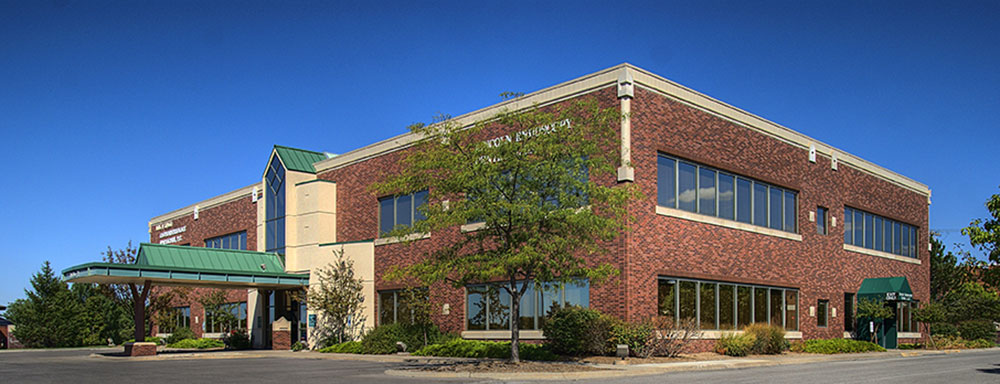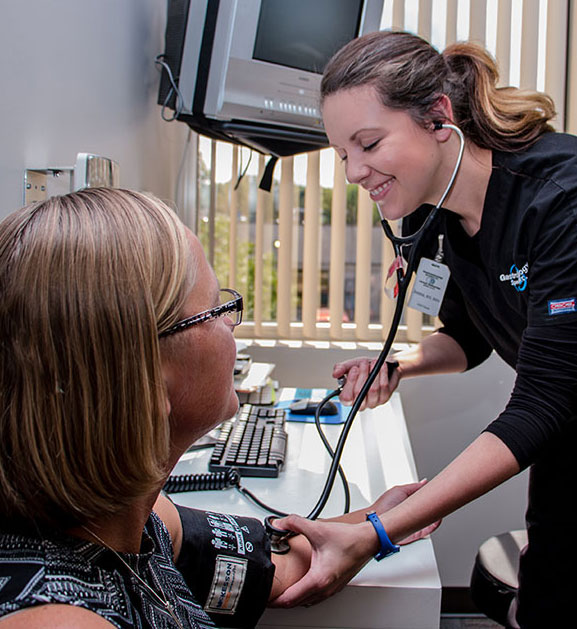Gas Basics
- The passing of gas is a normal bodily function that often helps people feel relief.
- Some people experience excessive gas, which may make them feel uncomfortable.
- Gas is caused by swallowed air and the food we eat.
- People can often control their gassiness through diet.
Gas
Gas in the digestive tract is not a subject that most people like to talk about. The truth is that all of us have it and must get rid of it in some way. Normally, gas passes out through the rectum or is belched through the mouth. These are both necessary functions of the body that allow us to eliminate gas.
When gas does not pass out of the body easily, it can collect in some part of the digestive tract, causing bloating and discomfort. Even normal amounts of gas in the body can bother people who are sensitive to this pressure. Although gas usually is not a sign of a medical problem, it can be. So if you have persistent or extreme gassiness (flatulence), mention it to your doctor when you have a checkup.
How Much Gas Does the Body Produce?
The amount of gas that people produce varies. Most people produce between a pint and a half gallon of gas each day. Oxygen, carbon dioxide and nitrogen from swallowed air make up a large part of flatus (gas). Fermenting foods in the colon produce hydrogen and methane as well as carbon dioxide and oxygen. All of these components of flatus are odorless. The unpleasant odor of some flatus is the result of trace gases, such as hydrogen sulfide, indole and skatole, which are produced when foods decompose in the colon.
Causes of Gas & Belching
A common source of upper-intestinal gas is swallowed air. Each time we swallow, small amounts of air enter the stomach. This gas in the stomach is usually passed into the small intestine where part of it is absorbed. The rest travels into the colon (large intestine) to be passed out through the rectum.
In some people, part of the gas is belched out instead of being passed from the stomach into the intestine. This happens for several reasons:
- Soft drinks contain carbon dioxide, which can produce large amounts of gas when warmed in the stomach. People with a gas People under a lot of stress often swallow large amounts of air.
- Some people swallow air frequently because they have post-nasal drip, chew gum or smoke.
- Rapid eating or poorly fitting dentures also may cause too much air to be swallowed.
- Drinking beverages that contain carbonated water may increase gas in the digestive tract. These problem should avoid carbonated or “sparkling” drinks.
Repetitive Belching
Some people experience frequent belching. This might occur after a person has swallowed air without realizing it. Sometimes belching accompanies the movement of stomach material back up (reflux) into the esophagus (the tube that connects the mouth and stomach). To clear material from the esophagus, a person may swallow frequently, which leads to more intake of air and further belching.
Another cause of repeated belching is gastritis (inflammation of the stomach lining). There are many causes of acute or chronic gastritis, but the most common cause is infection with a bacterium called Helicobacter pylori (H. pylori). When this organism gets into the stomach, it can produce bloating. This condition usually can be diagnosed by a gastroenterologist. The doctor may detect the infection with a breath test, stool test or blood test. The doctor also may take a sample of tissue or biopsy from the stomach, using a lighted, flexible tube called an endoscope that is inserted through the mouth. H. pylori infection usually is treated with antibiotics.
Is Gassiness Caused By a Disease?
If excess gas is your only symptom, it is probably not caused by a disease. The problem may occur simply because you swallow air or digest food incompletely. It could be that your intestines have the kind of bacteria that produce a lot of gas. You could have a sluggish bowel that does not get rid of air readily. You might have an irritable bowel or spastic colon, which means that you cannot tolerate gas accumulation inside of the intestines, so even small amounts of air feel uncomfortable.
Foods & Gas
The foods we eat can be a factor in the production of gas in the lower intestine. Some foods are not completely digested in the small intestine; they contain carbohydrates that are poorly absorbed in the intestine but upon reaching the colon, are fermented by the bacteria that live in the colon, causing gas. These foods include:
- Cauliflower
- Brussels sprouts
- Dried beans
- Broccoli
- Cabbage
- Bran
Fiber
Today, many people are trying to improve their nutrition and health by eating more fiber. However, some people discover that adding large amounts of fiber to their diets causes gassiness. This can happen when someone begins eating more whole-grain cereals, such as whole bran, oatmeal or oat bran, more whole-grain breads or more fresh fruits and vegetables. They get a feeling of being bloated when they first begin the high-fiber diet, but within three weeks or so, they may adapt to it. Some people, however, don’t adapt, and the bloating from eating a lot of fiber can be a permanent problem.
Milk & Dairy
A common cause of excess lower-intestinal gas is that a person’s body may not have enough lactase, an enzyme normally found in the small intestine. Lactase is needed to digest lactose, the sugar found in milk and other dairy products. When this sugar passes undigested into the colon, it is fermented by bacteria, and gas forms. This can be a cause of excessive flatulence.
If lactase deficiency is suspected of causing your gas, your doctor may tell you to stop eating dairy products for a while to see if you will have less gas. The doctor also may give you a breath test to find out if you are lactose intolerant. The breath test detects hydrogen that is released by the bacteria as the undigested lactose ferments in the colon. If you find milk causes gassiness, you may consider drinking milk in which the lactose has been broken down so it can be absorbed.
Fruit and Sweetners
Finally, ingestion of large quantities of foods that contain fructose, a sugar commonly found in fruits and processed foods in the form of high-fructose corn syrup, may also contribute to gassiness. The small intestine can only absorb a limited amount of fructose each day. As with undigested lactose, it passes into the colon where it is fermented by bacteria. Artificial sweetners, such as sorbitol, found in diet food products are also poorly absorbed and a source of excessive gassiness.
Abdominal Pain & Bloating
Eating a lot of fatty food can cause bloating and discomfort because the fat delays stomach emptying, allowing gas to build up there. This problem can be avoided by eating less fatty meals.
The feeling of bloating in the abdomen may increase during the day and become most severe after a large meal. Many people think the bloated feeling after eating is caused by large amounts of gas. Researchers, however, have not found any connection between this symptom and the total amount of gas in the abdomen. Studies show that in some people even modest amounts (1 ounce to ½ pint) of gas in the intestine can cause spasms there, especially after eating.
Gas in the upper abdomen often is relieved by belching. Sometimes people try to swallow air to make themselves belch. This doesn’t work, however, because it only adds to the amount of gas in the stomach and does not reduce the discomfort.
Gas can collect anywhere in the lower intestine. Often it collects on the left side of the colon and the pain can be confused with heart disease. When gas collects on the right side of the colon, the pain can be like that caused by gallbladder disease or even appendicitis.
A bloated feeling is probably not anything to be concerned about, but it can be a symptom of a more serious problem, such as an intestinal obstruction. If your problem is chronic, or if you are experiencing a severe increase in gassiness, you should talk to your doctor.
How to Reduce Gas in the Digestive Tract
If you are bothered by excessive belching or flatus, and your doctor has determined that you have no serious disease, the following suggestions may be helpful:
- Check with a dentist to make sure dentures fit properly.
- Avoid chewing gum or sucking on hard candies (especially sugarless gum or dietetic candies that contain sorbitol).
- Eliminate carbonated beverages and reduce foods containing high-fructose corn syrup from your diet.
- Avoid milk and milk products, such as soft cheeses, or try milk in which the lactose is already broken down, if you have lactose intolerance.
- Eat less gas-producing foods such as cauliflower, brussels sprouts, bran, beans, broccoli and cabbage. Or when eating such foods, you may consider trying over-the-counter gas relief medicines, which may help breakdown the non-absorbable carbohydrates found in these foods.
- Walking, jogging, calisthenics and other exercise help to stimulate the passage of gas through the digestive tract.
If your symptoms persist or worsen, see your doctor to make sure that the condition is not caused by abnormalities in your digestive tract.
Do Over-the-Counter Drugs Relieve Gas?
Many claims are made for over-the-counter drugs intended to relieve gassiness. Often people find that these drugs do not help much, but some of them do help some people.
- Simethicone and digestive enzymes, such as the lactose supplements, are among those often recommended by doctors. Milk treated with lactase may be tolerated by those with lactose intolerance.
- Sometimes doctors prescribe drugs called gastrointestinal stimulants that help move gas through the intestines more readily and that may help gassiness in some cases.
- Supplements that break down the non-absorbable carbohydrates responsible for gas caused by beans and some vegetables, such as a-galactosidase pills, may be helpful.


